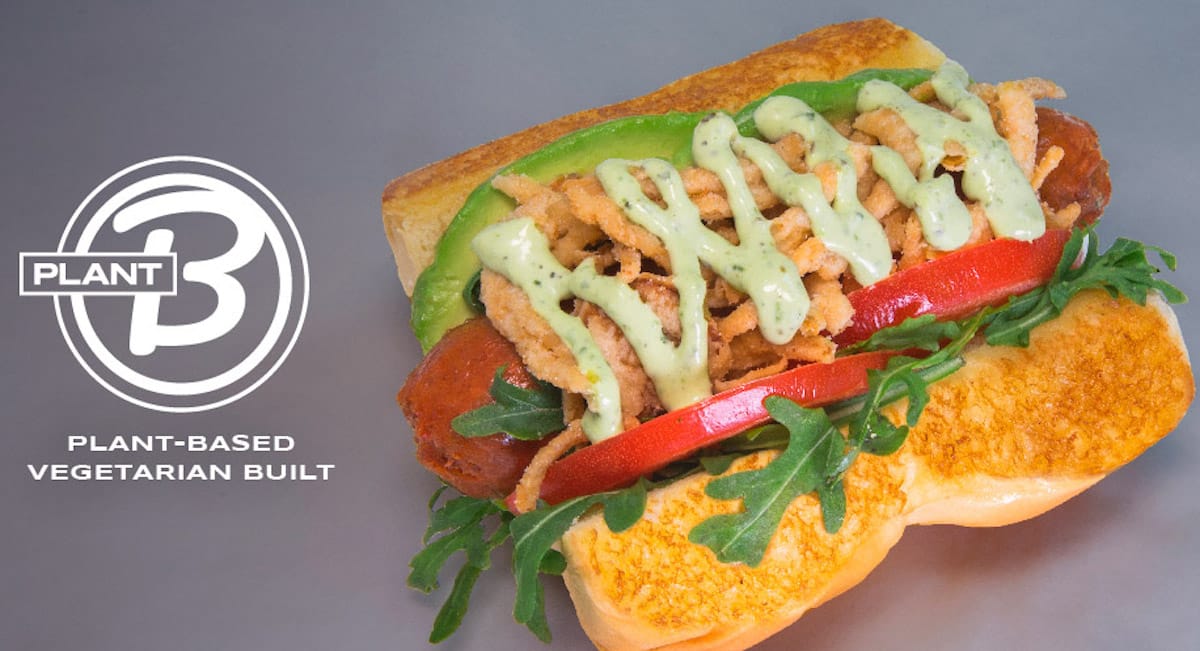If limited-service restaurant operators can find any comfort in the midst of the coronavirus outbreak, it’s this: With the off-premises trend having exploded over the last couple of years, brands were well prepared to shift their business models away from dine-in, as most have done over the last couple of weeks. Had this crisis happened five or six years ago before DoorDash, Grubhub, and mobile ordering were a thing, who knows how sales would be doing right now.
Even still, companies are leaning into off-premises innovation in an attempt to further solidify themselves as the carryout or delivery of choice among the smaller number of guests who continue to order from restaurants. Just look at Wow Bao; the Chicago-based Asian fast casual introduced a model where any restaurant around the country can license its product and turn their kitchen into a ghost kitchen for delivering Wow Bao, helping the brand expand into new markets without opening up a single store.
Now Dog Haus, a Pasadena, California–based fast casual specializing in hot dogs, brats, sausages, and burgers, is getting in on the action. The franchise, which has more than 50 locations across the country, announced the launch of The Absolute Brands, a portfolio of eight virtual concepts based around either existing Dog Haus menu items or new items made with existing Dog Haus ingredients. Four of the eight concepts will roll out in the coming weeks: Bad Mutha Clucka, a chicken-sandwich brand built around the namesake sandwich from Dog Haus’s menu; Plant B, with plant-based burger and sausage options; Bad-Ass Breakfast Burritos; and Freiburger, with a range of burger options. Salad, pastrami, and quesadilla concepts will roll out later, along with another breakfast concept.
Cofounder André Vener says the virtual brands have been in development for months. The plan was to start testing them in May in Dog Haus’s ghost-kitchen locations, then to roll them out to brick-and-mortar units in early 2021. But the coronavirus quickly changed plans.
“I think of it like, ‘Do not break glass unless there’s an emergency,’ and we grabbed the mallet and broke the glass,” Vener says, noting that The Absolute Brands was only about 80 percent ready when the team decided to launch anyway. “We needed to find something that would help franchisees at least recoup … part of their losses from this coronavirus.”
The original point of the virtual concepts was to maximize each Dog Haus location, staff, and kitchen space, and to expand the brand’s presence on digital marketplaces. With nine brands under one roof, Dog Haus shows up on the radar of more digital consumers and uses one staff and kitchen to supply it all.
In addition, with at least one breakfast concept in the mix, Dog Haus is able to operate in more hours of the day without needing to get the full restaurant and bar up and running.
“So now a brick-and-mortar that normally opens the door for hot dogs and burgers at 11 a.m. every day might open up their kitchen for delivery only at 6 a.m.,” Vener says. “There’s an entire audience that wants breakfast. We just don’t want to open up the full kitchen, the cashier, the food runners, the manager, A through Z.”
Vener says he and his cofounders, Quasim Riaz and Hagop Giragossian, looked at Dog Haus’s menu and ingredient roster, and at what was trending in the delivery space. While they weren’t about to start serving pizza and Chinese food out of Dog Haus kitchens, there were several opportunities that made sense based on what SKUs the brand had on hand. The only ingredient that needed to be added to accommodate the virtual concepts was a 14-inch tortilla for the Bad-Ass Breakfast Burritos Concept.
All of Dog Haus’s franchisees will soon have the option to unlock the ghost-kitchen potential of their restaurants by adding one or more of The Absolute Brands. Vener says the new menus don’t add too much complexity. For example, with Bad Mutha Clucka, the range of chicken-sandwich options includes past LTOs and specials, so franchisees already know the recipes and procedures.
While the Dog Haus team didn’t expect to rush The Absolute Brands to market in the middle of a crisis, Vener believes the virtual brands will not only support the brand in the short-term, but also help it thrive in the long-run.
“Once we come back to the norm and once we have our bars open, restaurants open, and we’re doing this, this is going to hopefully show a big jump in sales for franchisees moving forward,” he says. “We’re not trying to react to things that are just in the quick fix, but we are trying to look at some things for the future.”
For more on Dog Haus’s plans for virtual concepts, stream the podcast above.






